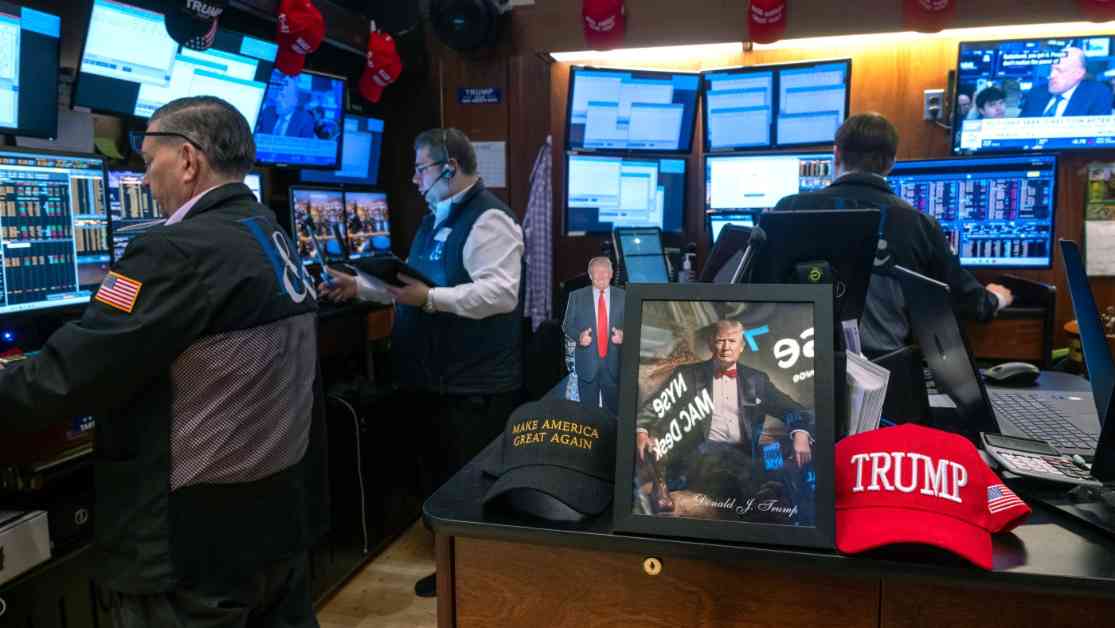President Trump’s recent tariff escalation has sent shockwaves through the stock market, sparking a significant decline in key indices. This move, which came as a surprise to many investors and economists, has raised concerns about the potential impact on the U.S. economy as a whole. The decision to double down on steep tariffs, despite mounting opposition from Wall Street and beyond, has left many wondering about the future of the market and the broader economic landscape.
Market Turmoil and Investor Concerns
In response to Trump’s announcement of additional tariffs on steel and aluminum from Canada, the stock market experienced a sharp decline. The Dow Jones Industrial Average fell nearly 500 points, representing one of the worst days for the markets this year. Following this initial drop, the market continued to spiral downwards, with the Dow shedding another 670 points in early afternoon trading. The S&P 500 and the Nasdaq also saw significant losses, reflecting the growing uncertainty among investors and analysts.
Experts warn that the tariffs imposed by the Trump administration could have far-reaching implications for the U.S. economy, potentially leading to a recession. Peter Ricchiuti, a finance professor at Tulane University, emphasizes the self-fulfilling nature of economic downturns, noting that market volatility and policy uncertainty can contribute to a negative feedback loop. As businesses face higher costs and decreased consumer demand, the risk of a recession looms large.
Trump’s Stance and Business Reactions
Despite mounting opposition from various sectors, President Trump remains steadfast in his commitment to the new tariffs. In a recent Fox News interview, Trump acknowledged the possibility of a recession but downplayed its significance, attributing it to a period of economic transition. While the president touts the benefits of bringing wealth back to America, many remain skeptical of the long-term effects of his trade policies.
Major U.S. companies are already feeling the effects of the economic uncertainty brought about by the tariffs. Retailers warn of increased costs for consumers, while airlines cite reduced confidence among consumers and corporations. Delta Air Lines, American Airlines, and Southwest have all revised their forecasts in response to the changing economic landscape, signaling a broader shift in business sentiment.
As business leaders prepare to engage with Trump at the Business Roundtable, concerns about the tariffs and their potential impact on the economy are likely to take center stage. While the president remains optimistic about the future of the economy, many industry experts and analysts are calling for a more measured approach to trade policy in order to mitigate the risks of a prolonged downturn.
President Trump’s tariff escalation has unleashed a wave of uncertainty in the stock market, prompting widespread concern among investors and economists. As the markets grapple with the implications of these new policies, the broader economic landscape hangs in the balance. Only time will tell how these developments will shape the future of the U.S. economy.



















